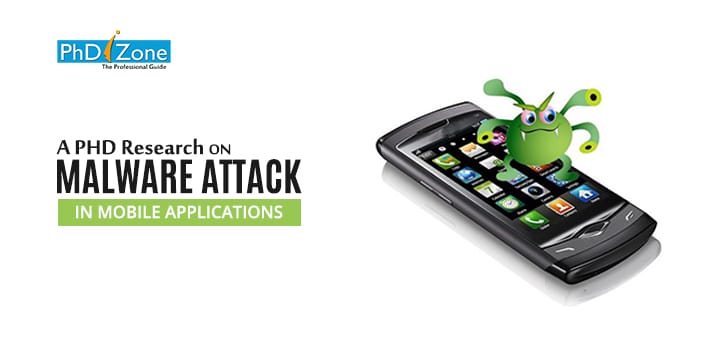Malware Research, Distributed Denial of Service attack is a type of cyber attack. The multiple computers or devices usually infected with malware act as a network of bots and attack a server to make it unusable. However, Mobile apps are a threat to DDoS attacks (Refer more about DDoS in Dissertation writing). In fact, mobile apps have been used to control mobile devices that are used to perform a DDoS attack as well. Many social and sharing apps like Facebook, LinkedIn, Instagram, Uber, Ola, Airbnb, etc. All susceptible to such attacks because it is easier to profile individual users through their mobile devices.
Malware Research in Mobile Applications – Professional Dissertation Writing
One of the reasons why mobile apps are susceptible to these attacks. Because it is easy for an attacker to profile the user itself and that tremendously increases the probability to be able to perform DDoS attacks on mobile apps in a successful manner. Mobile malware is malicious software specifically written to attack mobile devices such as smart phones, tablets, and smart watches. Some of the malware names are Ramsonware, Spyware, Trojan horse, etc.. This PhD research paper help explains about malware attack or Distributed Denial of Service attack in mobile apps.
Do you remember how many times you have clicked “I agree” on the never-ending ‘Terms and conditions’ list for various software downloads, signups and registrations without even scrolling down to the end. There are various PhD research assistance detailed studies on security issues in banking apps as well as security issues in e-commerce apps and have found more than 80% of apps in both cases to be weak in security. Apps that read the contact list and messages—including the ones about your bank transactions and one-time passwords, and access your pictures, screenshots and messenger images.
Actually it occurs when selected ‘Accept’ on the pop-up before you installed the apps. Apps know the exact location. At any given point, your house number, restaurants and cinema halls in frequent, and email account details. When install an app or an app update from Google’s Play Store. For instance, you get a pop-up listing all the permissions it requires. This could include permissions to access to the text messages, phone call details, media files, etc. Apps need access to specified content on your phone to fulfil their functionality in Dissertation Consultation.
How to Prevent DDoS Attacks
- Think Twice, Always
- Stay Updated
- Choose Wisely
- Perform Security Audits
To summarize, one possible solution for limiting the potential for mobile malware, literature review is to upgrade to the latest OS. Visit us PhDiZone
Written by,
Sathya Priya Shanmugam B.E(CSE)








